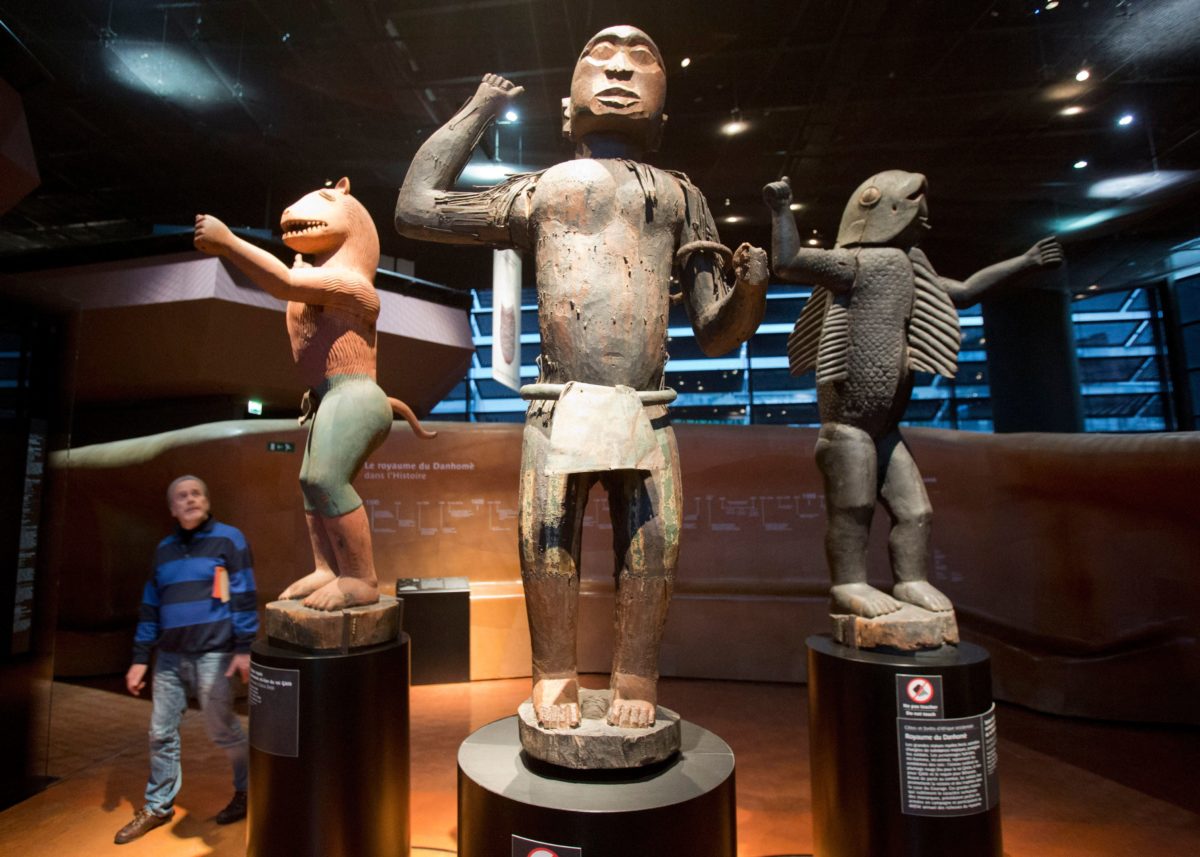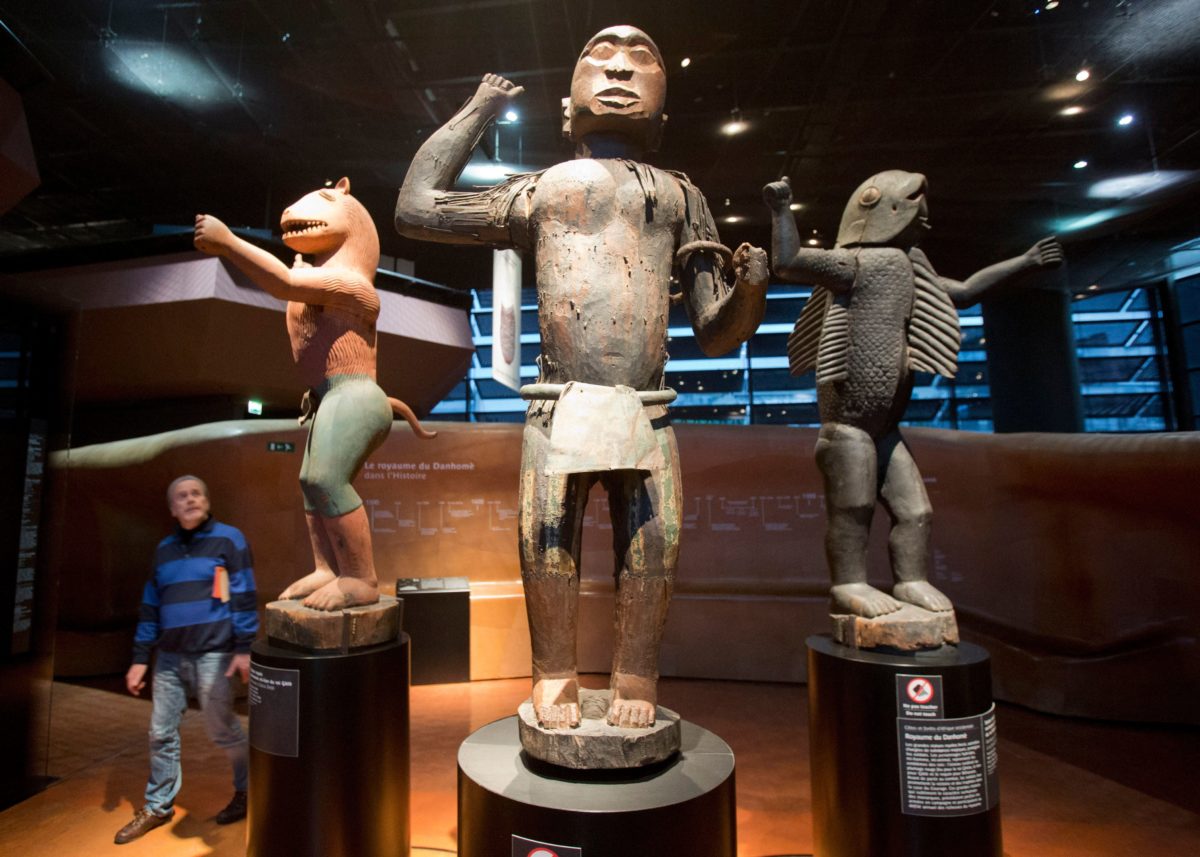[ad_1]

Artifacts from Benin on view at the Quai Branly Museum in Paris.
MICHEL EULER/AP/SHUTTERSTOCK
For many in the art world and far beyond, a 2018 report by art historian Bénédicte Savoy and economist Felwine Sarr that urged France to begin restituting looted objects to Africa was a landmark. Immediately, its impacts were felt—Emmanuel Macron, the president of France, backed the report’s thesis, saying that it “opened the door to complete maximalist restitution,” and said he would return 26 stolen artifacts to Benin days. Now, on the one-year anniversary of the publication of the Savoy/Sarr report, one organization has committed significant funding to repatriation.
The Open Society Foundations, a George Soros–funded grant-making organization based in New York, has said that it will put $15 million toward a new initiative that will help bring cultural objects back to Africa. The initiative is set to distribute funds over the course of four years, in partnership with governments, museums, and academics around the world.
The organization’s director of culture and art, Rashida Bumbray; its director of special initiatives, Anthony Richter; and the director of West Africa program, Ayisha Osori, will head up the initiative by the Open Society. (Sarr chairs the program directed by Osori.)
Patrick Gaspard, the president of the Open Society, said in a statement, “The legacy of colonial violence has deep implications for the ways that racism and imbalances of power are perpetuated today. This isn’t just about returning pieces of art, but about restoring the very essence of these cultures.”
The Savoy/Sarr report called on French museums to return objects that had been plundered from Africa—a move that would significantly impact institutions such as the Quai Branly Museum in Paris, which owns 70,000 works from sub-Saharan Africa. Initially, the report ruffled feathers in France, but now it appears that the debate surrounding it has calmed somewhat. An op-ed by Alexander Herman, the assistant director of the Institute of Art & Law, that was published by the Art Newspaper this week said that “nothing has transpired apart from two closed-door seminars.”
Academics have also criticized the report. In a recent report on the ways American museums are grappling with the its impact, Cécile Fromont, an art history professor at Yale University who specializes in African art, told ARTnews that the report only deals with “restitution, not necessarily repatriation.” She added, “If the object’s ownership is transferred to African states, then they are able to participate in the international art world in a way that, without it, they are not able to. Once they have a stake, they can sit at the table.”
[ad_2]
Source link

